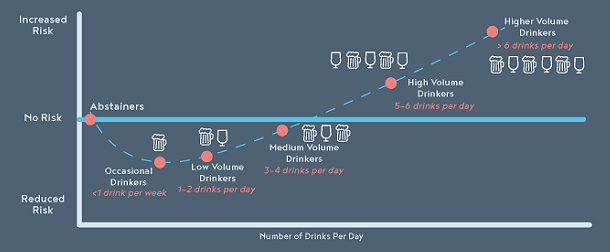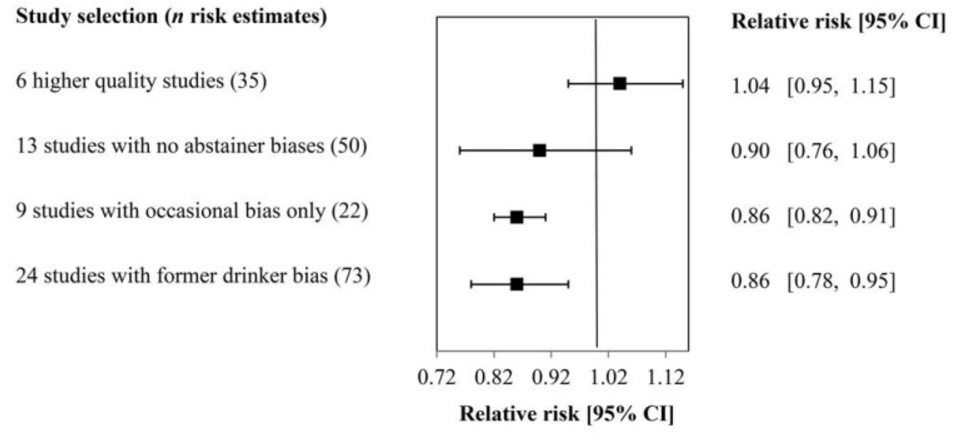Have you heard of the “French paradox”? I have had a lot of people openly wondering about the role that wine plays in your heart’s overall health. Is it good? Is it dangerous? What kind of risks factors exist? I want to dive into the science with you today so that you really know what you are sipping on at your next cocktail party.
- Have any questions?
- 480-767-9018
- support@in-goodhealth.com

Yummy Salad Jars
July 21, 2017
Never soak your beans again! 4 surprising reasons
August 7, 2017
Yummy Salad Jars
July 21, 2017
Never soak your beans again! 4 surprising reasons
August 7, 2017Home > Health Tips > Is Wine Good For Your Heart?
Is Wine Good For Your Heart?


The “French Paradox”
If you are into enjoying a nice glass of red wine with dinner, chances are you might have heard of this concept at one time or another. The French paradox is the idea that the French, who have a diet that is relatively high in saturated fats (compared to the rest of the modern world), do not really have a large amount of heart disease. The idea is, for the amount that they eat and drink, they should have more in the way of heart disease.
This has ultimately paved the way for more people to think of wine as an added benefit to your heart’s health. Latching onto the idea of antioxidants helping to improve your heart’s functioning. While it might be a popular line of thought, is it true?
Cardiovascular Data

There have been plenty of studies done about how drinking alcohol might just be associated with reduced mortality. Due to heart disease – in particular populations1. While some have suggested that the benefit might be due to wine. Others have pressed on in order to examine what is exactly in red wine. Specifically flavonoids and other antioxidants.
The truth of the matter is that while we might be able to find these in red wine, they are also found in other foods. Such as grapes or red grape juice. It is also important to remember that during these studies, lifestyle factors for these populations were not taken into account. These might include:
- More physical activity
- A diet high in fruits and vegetables
- A diet lower in saturated fats
There really has not been any direct trials to determine the exact effect that wine might have on developing heart disease or stroke. It only really remains something to think about, and the science does not back it up.
The Role of Alcohol
As it happens, drinking too much alcohol can actually raise the levels of fats in your blood – triglycerides, to be exact. It can also lead to:
- High blood pressure
- Heart failure
- Increased caloric intake (which can lead to obesity and developing diabetes)
Excessive drinking, in particular, can lead to stroke, as well as other issues like:
- Fetal alcohol syndrome
- Cardiomyopathy
- Cardiac arrhythmia
- Sudden cardiac death
Bottom Line: It really seems like the bad outweighs the good when it comes to alcohol – specifically in answering the question about whether or not red wine is good for your heart. While it might have some important properties, these same things can be easily replicated elsewhere in your diet – why subject yourself to the added risks that come from consuming alcohol in general?
A J-Shaped Curve

The better question, the one I think we should be asking, is more about total mortality. In the past, we have seen studies where those who had the lowest alcohol intake had higher mortality than low-to-moderate alcohol consumption. This actually made people feel vindicated in having a few drinks here or there, because the lowest intake appeared more threatening.
Key Insight: The problem was that this study did not factor in some pretty important things, such as a high percentage of abstainers – former drinkers and those who had medical conditions. None of these were factored in, which muddies the waters when it comes to the results.
Studies with Voluntary Abstainers
So, how does the data look that factors in this neglected population? Well, things certainly look a bit different than they did before2. Have a look at this handy graph:

In this case, there was higher mortality in moderate drinkers and an even higher rate in those who had a high level of intake. This includes binge drinking, which seemed to equate to “high intake,” even when the monthly or weekly averages are low.
Risk Factors
I do not want to seem like I am coming down hard on you if you enjoy a cold drink here and there. When it comes to your health, though, it is important that you are properly informed. When people begin to think that red wine can somehow benefit their lives, that it acts as a sort of medicine, due to faulty research – that kind of thing really worries me.
Something should never be entirely evil, or entirely good, you just need to understand the risk factors. When it comes to the risks, we have seen a common link between alcohol, and:
- Colon Cancer
- Rectum Cancer
- Breast Cancer
- Oral Cavity Cancer
- Parynx Cancer
- Larynx Cancer
- Liver Cancer
- Esophagus Cancer
- Brain Health3
Bottom Line: The risk factors are very real when it comes to consuming alcohol, and you need to know about them. Keep an eye on your intake, understand how much you are putting into your system, and just how you might be putting your body at risk. When you are able to do this, you might see that alcohol might be hurting your body more than it is benefitting it.
Is there such a thing as a harmless dose?
While it might be nice to think of something like this when it comes to alcohol, the data is just not known at this point in time. In that regard, we need to currently treat any dose of alcohol as harmful – especially at it concerns increasing the risk factors for your long-term health.
Why is alcohol harmful?
The main reason that alcohol is harmful is because of the main metabolite, which is acetaldehyde – considered to be a very strong carcinogen. Overall, if you are looking to decrease acetaldehyde in your body you need to consider three things:
- Less Alcohol
- Less Tobacco
- Better Oral Hygiene
What if you do drink?
I do not necessarily want to tell you to stop drinking today, I just want you to be better informed about the decisions you make for your body. If you do plan on drinking, you need to consider some of the following steps:
- Simply consider drinking less – it is easier than you think to say no to just one more drink, and your body will definitely feel the difference down the road when you exercise that sort of healthy restraint.
- Drink wine or beer – try avoiding hard liquors, and go with wine or beer. The (potentially) more natural processes can be less detrimental to your body, and you are more likely to drink less in one period of time – when compared to hard liquor.
- Chase with water – follow each swallow of alcohol with water, otherwise it lingers in the mucous membranes 5 – 10 minutes and bacteria will begin.to form acetaldehyde.
Bottom Line: Follow some of these simple steps to help benefit your body in the long run – that’s really all it takes.
Reconsider the French Paradox
Sure, it might sound attractive to enjoy a glass of red wine to better your heart, but the research shows that it does nothing of the sort. How do you really benefit your body? You get to learn more about it. If you are looking into ways to lower acetaldehyde in your body, consider testing and treating your helicobacter pylori (h.pylori).
At the same time, it always helps to learn more about your body, so take the Thyroid Quiz (Click Here) while you are at it. The next time someone offers you a glass and says it will do your heart good, tell them “no thanks” and feel free to pass this article along to help spread good science and clear up any confusion people might have.
1 – https://www.heart.org/HEARTORG/HealthyLiving/HealthyEating/Nutrition/Alcohol-and-Heart-Health_UCM_305173_Article.jsp?appName=MobileApp
2 – https://www.ncbi.nlm.nih.gov/pmc/articles/PMC4803651/
3 – https://www.bmj.com/content/357/bmj.j2353

P.S. Whenever you are ready, here is how I can help you now:
- Schedule a Thyroid Second Opinion with me, Dr. C, Click Here for Details
- Need help to choose supplements? Click ‘Help Me Decide Here'
- Get my top books Here
Dr. Alan Glen Christianson (Dr. C) is a Naturopathic Endocrinologist and the author of The NY Times bestselling Hormone Healing Cookbook, The Metabolism Reset Diet, and The Thyroid Reset Diet.
Dr. C’s gift for figuring out what works has helped hundreds of thousands reverse thyroid disease, heal their adrenals, and lose weight naturally. Learn more about the surprising story that started his quest.








